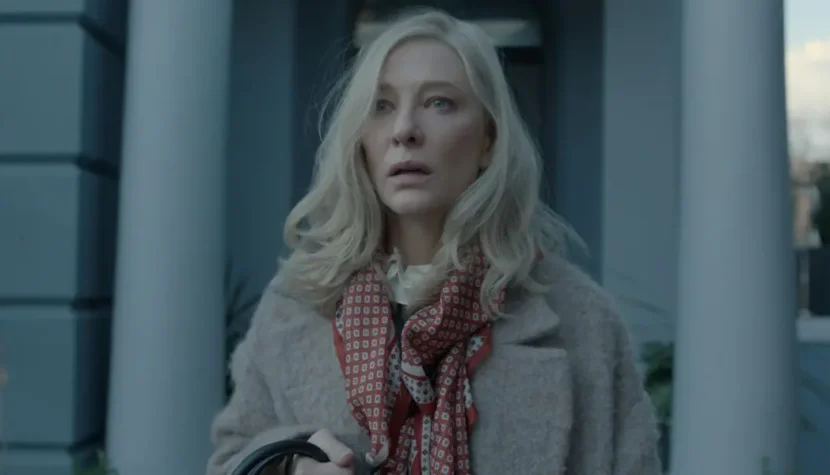DISCLAIMER. A Psychological Thriller Series [Review of Two Episodes]

The extensive TV series library of the Apple TV+ platform has just expanded with another intriguing addition—the miniseries “Disclaimer”, directed by Alfonso Cuarón (“Roma”, “Children of Men”, “Y Tu Mamá También”) and starring the brilliant Cate Blanchett. Although only two out of seven episodes are currently available, this psychological thriller shows great potential.
Apple has always focused on high-quality TV productions. Excellent science fiction like “Severance” or the dystopian “Silo”, tense and gripping crime dramas such as “Black Bird”, “Presumed Innocent“, and “Defending Jacob”, the drama “The Morning Show”, the horror series “Servant”, and the comedy “Ted Lasso” are just a few of the platform’s successful and award-winning shows. As of Friday, “Disclaimer”, a seven-episode miniseries based on Renée Knight’s novel of the same name, joins them.
Catherine Ravenscroft (Cate Blanchett) is a renowned investigative journalist and documentary filmmaker, known publicly for exposing hidden truths. She is undeniably a woman of success (it’s worth noting that in one of the first scenes, Catherine receives a journalism award from none other than Christiane Amanpour), adored by her husband Robert (Sacha Baron Cohen), who runs the family business and enjoys expensive wines.
The weak link in this perfect picture is their 25-year-old son Nicholas (Kodie Smit-McPhee), who hasn’t matched his parents’ success. He works in an electronics store, lives with roommates in a messy apartment, and struggles emotionally.
Catherine’s life is turned upside down when, one evening, she finds a package left on her living room table. Inside is a book titled “The Perfect Stranger”. But on the first page, there’s an unusual disclaimer: “Any resemblance to persons living or dead is not coincidental.” Catherine quickly realizes that the novel’s protagonist is herself from years ago, and she is terrified that a secret she has kept hidden from the world is about to be exposed.
The person behind this upheaval is an aging English literature teacher (Kevin Kline). As he clears out his deceased wife’s (Lesley Manville) belongings, he discovers a locked drawer in her desk. Inside, he finds a manuscript dedicated to their tragically deceased son Jonathan (Louis Partridge), along with a stack of photographs of a young woman.
The role given to Cate Blanchett is not new territory for the talented actress—wealthy, accomplished women with a hidden secret are something we know from her performances in “Blue Jasmine” and “Tár”. However, Sacha Baron Cohen’s role is a complete departure from his typical exaggerated comedic characters—here, he plays a husband deeply in love with his wife, a devoted and calm family man.

“Be mindful of narrative and form. They have the power to bring us closer to the truth, but they can also be a powerful weapon used for manipulation,” warns Christiane Amanpour in her on-screen speech, offering us a hint of what we can expect. The story unfolds in two time periods and follows multiple characters. It quickly becomes clear that Catherine’s story is far more complex and multifaceted than it initially seems. The truth in “Disclaimer” has many versions.
This impression is further enhanced by voice-over narration, delivered by various characters or an external narrator. While the former is understandable, the latter feels like an odd, unnecessary technique that detracts from the show. On the positive side, the stunning cinematography by Emmanuel Lubezki, Cuarón’s longtime collaborator, is a major highlight.
After two episodes, it’s hard to say what “Disclaimer” will ultimately become. Will it be, as some reviewers suggest after seeing the entire series, a commentary on modern cancel culture? Or will it simply be a crime mystery we binge in one weekend?

